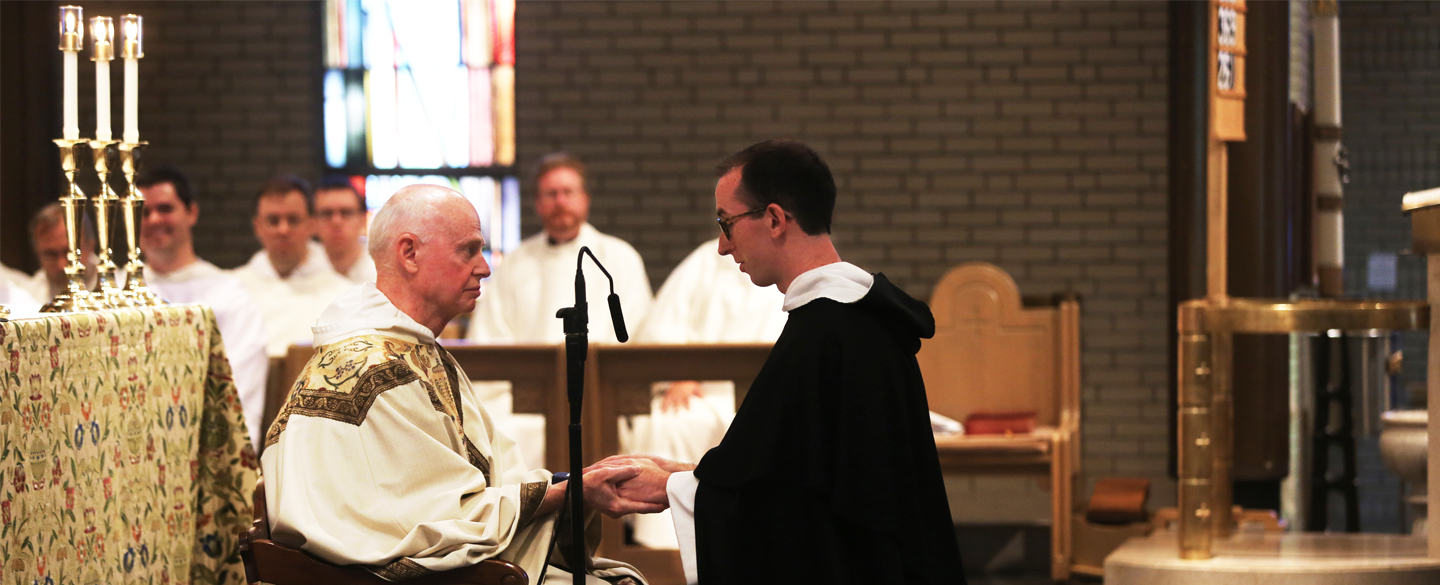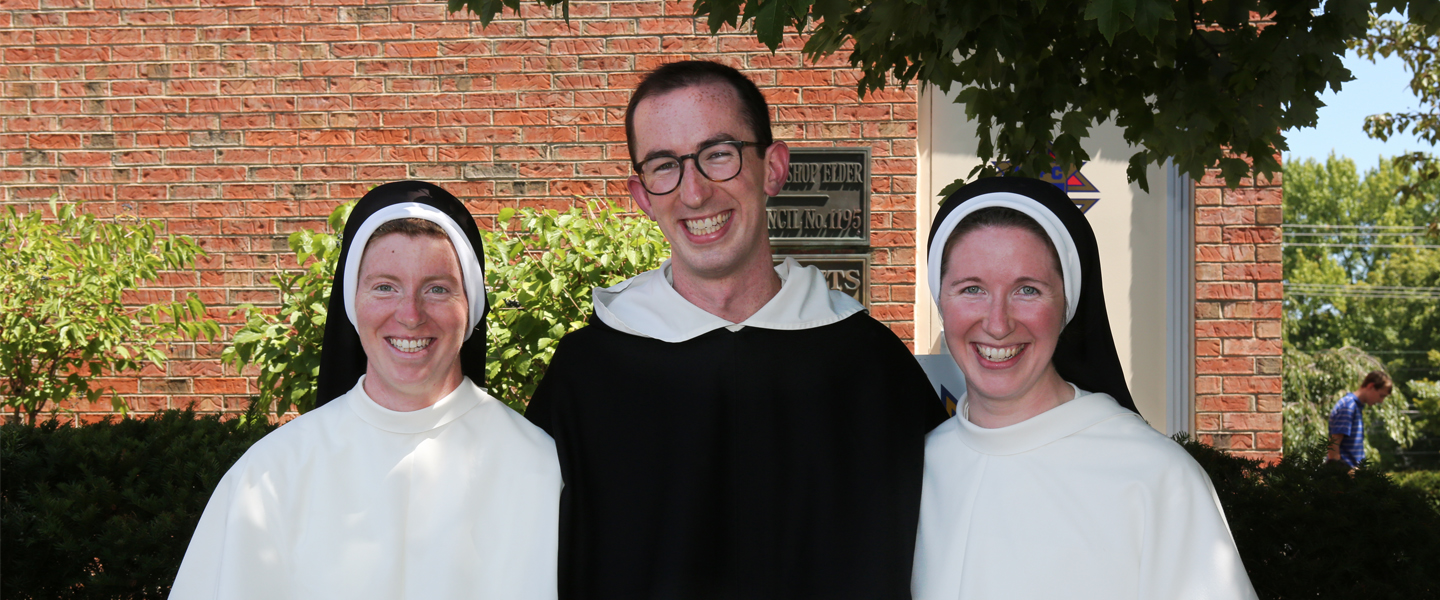
The Clarke Family: A Brother's Story
For me, having a Dominican vocation is less a matter of being called than of being corralled by the grace of God. Rather cow- or sheep-like, I had to be poked and prodded into the right—in this case, Dominican—path. With two older sisters already Dominicans, I figured that statistically, I shouldn’t be a Dominican. The family quota of vocations seemed to be filled, and then some. I was thus freed of the burden and bother of a religious vocation. As it turns out, however, God’s providence doesn’t run on statistical analyses. And so much the better for me.
I was born in Seattle, the third of eight children. I grew up with a love of baseball, old Buddy Holly records, and eventually, philosophy. I first met the Dominicans twelve years ago, during a visit to my as-yet-un-habited sister who was studying in Washington D.C. One evening she took me to vespers at the Dominican House of Studies, and I remember being deeply impressed by the rows of white-clad friars chanting the Salve. Two years later, this same sister entered the Nashville Dominicans, taking the name Sr. Beatrice. Exactly one year after that, my second sister entered as well, and is now Sr. John Peter.
Once my sisters had entered St. Cecilia’s and my family started making regular trips to visit them at the Motherhouse in Nashville, the grace of their vocations began to infiltrate our family. The faith of the entire family was deepened and renewed. In Nashville, we had the opportunity to meet a growing array of Dominican sisters and friars that seemed to have tapped some secret spring of joy and freedom. I had never before met people so strangely happy.
And yet, while Dominican life seemed to be a rare oasis of grace and happiness, it also made what seemed to a downright unreasonable demand. It required the sacrifice of independence. During those years of high school and college, while feeling a pull toward religious life, I resisted the idea that my own happiness might involve such a sacrifice; I was resolved to be the master of my own fate, the captain of my soul, and so on. Still, as I tried to ignore Christ’s promise that “whoever loses his life, will save it,” I continued to be fascinated by the paradoxical freedom I saw in Dominican life.
With plans to pay off some college debt before applying to graduate programs in philosophy, I graduated from the University of St. Thomas in Saint Paul, Minnesota, and started working, first for a construction company and then for a publishing firm. Throughout this year, many circumstances in my life began to converge alarmingly on a single point: the Dominicans. My desire to study and teach philosophy disappeared and then suddenly resurfaced in the form of a stronger, deeper desire to study and preach the Gospel for the salvation of souls. After being greatly moved by some preaching on St. Paul’s letter to the Romans, three things crystallized for me: first, I needed to pattern my life not after my own whims and ambitions, but after the life of Christ; second, the Word of God is transformative; and third, I wanted to preach the grace and freedom of the Gospel that had transfigured my life. I was filled with a desire to offer not just a part, but the whole hog; I would apply to the Dominicans. My own older siblings’ vows had been a powerful example of the joy of a life consecrated to God. Also, and more importantly for me, they had proved that such a life is possible. Now I was struck with the realization that we don’t construct our happiness—we receive it. Freedom is not a matter of forging ahead, but of following. I entered the Order in 2013 and made simple profession on the Feast of the Assumption, 2014.
In an image that is both profound and comic, Dante compares the life of a Dominican to that of a sheep plodding cheerfully along in the path tramped down by the shepherd. I see each day in my own life and in those of my brother and sister Dominicans that for those the Lord calls (or corrals) into Dominic’s flock, there is abundant joy and freedom, “good fattening if there be no straying.”
Read Sister John Peter's story.
Photos used with permission of the Province of St. Joseph.


 Back
Back